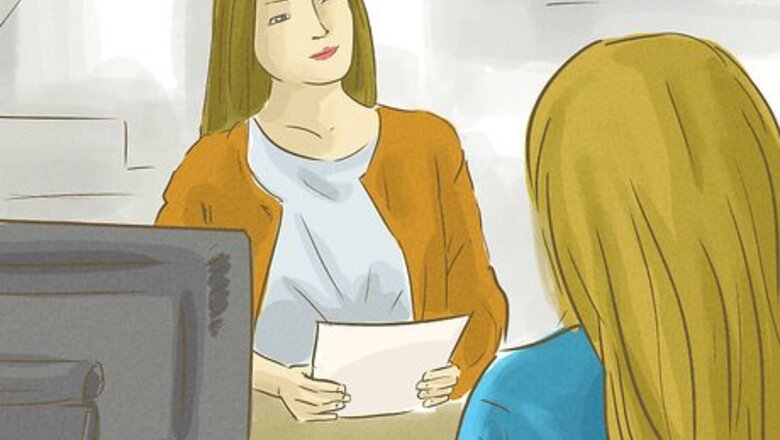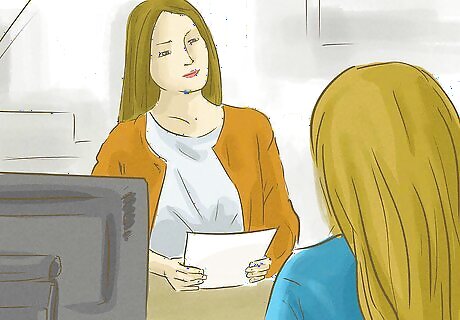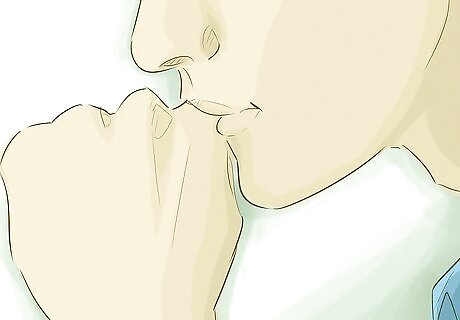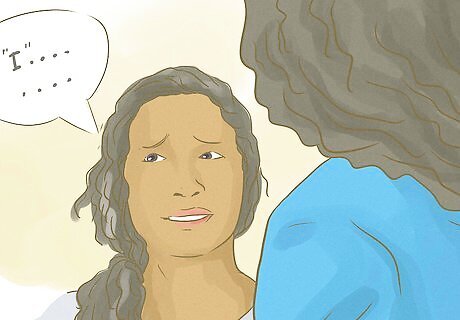
views
An Initial Reaction

Realize that you're losing your temper with this person. This is important, otherwise you might simply let out your annoyance or feel justified in being irritated.

Breathe deeply and slowly. Keep your cool by breathing deeply and slowly, to calm down your nervous system and to buy yourself some thinking space. Try inhaling for 4 seconds, holding for 2, exhaling for 8, waiting for 2 and repeat. This will help to calm you down.

Count to 10 in your head. Once again, this buys you some time to think about what you'll do and say next.

Be polite and short. Say something neutral to allow you to excuse yourself from the situation so that you can go and calm down away from the source of the irritation. Walk away from the person and the situation with dignity, keeping calm as you leave. The last thing you want to do in this situation is to lose your temper. If things come to a head, don't be afraid to be the stronger person and just walk away. It's easier to let the other person calm down a bit and try to talk later, and it will be easier for both of you.
Working Through Your Irritation

Find a pillow to punch and punch it a few dozen times. This can help you to release your annoyance initially. This step is optional, as not everyone finds this sort of physical release useful or warranted.

Keep a diary to write in. This can allow you to scribble down all your concerns, thoughts and solutions. Work it out through writing.

Let it go. It's easier to just let things go and move on. For example if someone said they'd do something for you and they forgot, don't get annoyed. Instead, ask them if they could remember to do it at the next possible moment and send them a text close to that time to remind them to do it. Don't focus on the fact that they forgot, forgive them and move on, it's not worth the hassle for you.

Don't linger on the past. If someone has done something to bug you or even unknowingly annoys you, don't tell them what they should have done. If you need to say this, just say it's ok for now but in the future could they please do it differently. Keep your calm. If you're communicating with this person through texting or messaging, then avoid using all capitals and focus on your punctuation. "Please could you not do that" is much more polite and calmer than "DNT DO THT" this will also work to help calm the other person down if they are reacting like this.
Approaching Future Situations

Acknowledge the anxiety and tension that comes with being frustrated and annoyed with other people. This is doing you harm, especially in the long run, as the inability to relax and find a place of calm leaves you constantly on edge. For the sake of your own health, tap into your inner calm and rely on it to deal with future annoying situations and people.

Let go of the need to be in control or to have everything perfect. Realize that if you have a need to control or perfect situations or outcomes, then you are probably going to get annoyed a lot. By letting go of this tendency and letting things unfold as they will, you will feel less annoyance when things don't turn out the way you hoped they would. Snap out of autopilot. When you approach the world with a set of expectations and run yourself according to that instead of being flexible and aware of the moment, it's easy to become annoyed. You're actually not ready for interacting clearly with other people in this situation because you're following a prepared script of how the world "ought to be" rather than how it actually is. Teach yourself to be more aware of the world around you and less determined to shape it to your preferences.

Use mindfulness to remain calm. This will help you to put the small things into perspective. It can also help you to accept that people are going to do things that aren't necessarily in agreement with what you'd like done or said. Mindfulness will help you to respond rather than react to such "annoyances" or deviations in your preferences. Through mindfulness, you can see what is actually happening and stay non-judgmental. This lets you sort out whether or not there is actually something worth being annoyed about, and often there won't be. Even where there is, by being mindful, you can focus on finding a mutually agreeable solution instead of letting your frustrated feelings take center stage. Mindfulness takes practice. It's not something you whip out for use once in a while––it's a whole way of being, of thinking and of approaching the world. To assist you, see further How to be mindful and How to exercise mindfulness to be happier. Mindfulness allows you to access your self- and other-compassion. This is vital for effective treatment of annoyance.




















Comments
0 comment